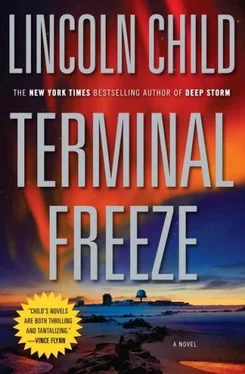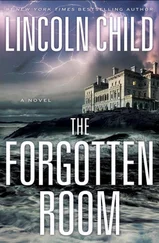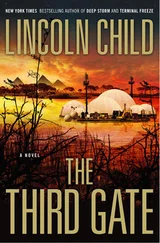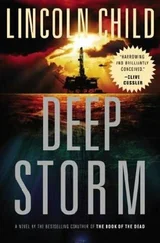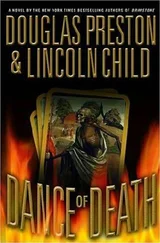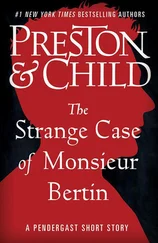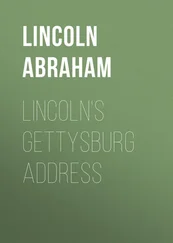He stepped back out into the hall.
“Action!” Conti called out. Marshall stepped briskly in, seated himself behind the desk, and pretended to busy himself at Faraday’s laptop.
“Cut it and print it,” Conti said. “Much better.” He stepped around the desk. “Now, I’m going to ask you some questions, off camera. You will then answer them, on camera. Remember that in the final print, it’s going to be Ashleigh asking the questions, not me.” He glanced down at a clipboard. “Why don’t you start by explaining why you’re here in the first place?”
“Sure. We’re here for three reasons, really. First, we wanted to see the impact of global warming on subarctic environments, specifically glaciers. Second, we wanted an undisturbed site to conduct our analyses. Third, we had to do it relatively cheap. Fear Base fit all three.”
“But why this mountain, in particular?”
“Because of its glacier. Examining glacial retreat is an excellent way to measure global warming. Let me explain. The upper part of a glacier, the part that gets the snowfall, is known as the accumulation zone. The lower part, the glacier’s foot, is the ablation zone. This is where ice is lost through melting. A healthy glacier has a large accumulation zone. And this glacier-the Fear-is not healthy. Its accumulation zone is small. Dr. Sully’s been recording the speed of its retreat. It took ten thousand years to form the glacier, bring it this far. But the alarming thing is that it has retreated a hundred feet in just the last twelve months…”
He stopped. Toussaint had lowered the camera, and Conti was perusing his clipboard again. Time is money, Marshall reminded himself.
Conti glanced up. “What’s the scientific name for the cat again, Dr. Marshall?”
“Smilodon.”
“And what was the Smilodon’s diet?”
“That’s one of the things we hope to discover with more accuracy. The contents of the stomach should-”
“Thank you, Doctor, I get your drift. Let’s try keeping it to general terms. Was this cat a meat eater?”
“All cats are meat eaters.”
“Did it eat humans?”
“I suppose so. When it could catch them.”
A look of impatience crossed Conti’s face. “Would you state that, please, for the camera?”
Marshall glanced at the camera and-feeling a little foolish-said, “Smilodons ate human beings.”
“Excellent. Now, how did you feel, Dr. Marshall, when you discovered the cat?”
Marshall frowned. “How did I feel? Shocked. Surprised.”
Conti shook his head. “You can’t say that. ”
“Why not? I was very surprised.”
“Do you expect our sponsors to pay $500,000 a minute to hear you were ‘surprised’?” Conti thought for a moment. Then he turned the clipboard over, pulled an erasable marker from his shirt pocket, and scrawled something on the back. “Let’s try something. I’d like to hear how you sound reading this. Just for a sound test.” And he held the clipboard up.
Marshall peered at the handwriting. “It was like peering into the heart of darkness.”
“Again, please? Slowly, and with more drama. Look at the camera, not at the clipboard.”
Marshall repeated the sentence. Conti nodded with satisfaction, then turned to the assistant DP. “Get that?”
Toussaint nodded. Conti turned to the soundman in turn. “Got it?”
“Got it, chief.”
“Wait a minute,” Marshall said. “I didn’t say that. Those are your words.”
Conti spread his hands. “They’re good words.”
Marshall lost his patience. “You’re not interested in scientific accuracy here. You’re not interested in accuracy, period. You just want a good show.”
“That’s what I’m being paid for, Doctor. Now, let’s talk about you.” Conti glanced down at his clipboard again. “I had my researchers do a little digging into the members of this expedition. Your story is particularly interesting, Dr. Marshall. You were a decorated officer. You won the Silver Star. Yet you left the army with a dishonorable discharge. Is this true?”
“If it is, you could hardly expect me to want to talk about it, could you?”
“Let’s try again.” Conti pressed his hands together. “ Northern Massachusetts University is-how shall I put it?-not known for the quality of its academics. How does somebody like you end up a scientist-especially at a place like that?”
Marshall didn’t answer.
“You qualified as a sharpshooter. So why is it you’re the only member of your expedition who refuses to carry a rifle for protection?”
Abruptly, Marshall stood up. “You know what? Go find yourself another poster boy. I don’t think I’m going to answer any more questions.”
When Conti opened his mouth to speak, Marshall stepped closer. “And if you try to ask any, I’ll knock your annoying little ass across this lab table.”
There was a strained silence. Conti looked at him-the same appraising look he’d given him just before Wolff produced the contract. After a long moment, he spoke. “Let me explain something to you, Dr. Marshall. I am a powerful man-and not just in New York and Hollywood. If you decide to make an enemy of me, you’ll be making a rather large mistake.” He wiped the scrawl off the clipboard with the palm of his hand, then turned to Toussaint. “See if you can track down Dr. Sully. Something tells me that we’ll find him more cooperative.”
Later that night, Marshall found himself walking through the equipment-crowded corridors of B Level. In his lab and his quarters, he’d felt preoccupied and distracted-feelings not helped by the raucous conversations and clatter of passing gear. Knowing that, as usual, he’d find sleep difficult, he headed toward the surface to take the nightly walk that had become something of a habit with him.
He climbed the stairs and walked into the entrance foyer, his steps ringing on the metal-and-linoleum floor. The MP post was manned, as he knew it would be: since the documentary contingent had arrived, Sergeant Gonzalez had kept it staffed day and night, despite all the other demands on the soldiers’ time. But to Marshall ’s surprise the sentry station was manned by Gonzalez himself.
The sergeant nodded to him as he came up. Despite being well into his fifties, the man radiated a feeling of almost inexhaustible strength. “Doctor,” he said. “Going on your evening constitutional?”
“That’s right,” Marshall said. He felt a faint surprise: he didn’t know Gonzalez kept track of his movements. “Sleep’s a little hard to come by.”
“I’m not surprised-what with that frat party going on down there.” Gonzalez frowned. His bullet-shaped head seemed attached directly to his shoulders, and as he shook it in disapproval, heavy bulges appeared at the nape.
Marshall laughed. “They are a little noisy.”
Gonzalez scoffed. “Beg pardon, Doctor, but the noise is the least of it. There are just too damn many of them. We weren’t expecting half this many, and it’s putting my base under strain. The physical plant’s old, it’s been maintained only for light use. And this is hell and gone from light use. There are only four of us, we can’t nursemaid all of them. This afternoon Marcelin found one of them wandering out of bounds, in the military operations sector.” The frown deepened. “I’m half tempted to file a formal complaint.”
“Things should ease up soon. I think a dozen or so are leaving tomorrow.” He’d heard that once the bulk of the setup was complete, the roustabouts would be heading back south.
Gonzalez grunted. “Won’t be soon enough for me.”
Marshall glanced speculatively at him. My base, Gonzalez had called it. The man had reason to feel possessive. Now close to retirement, he’d supposedly spent almost thirty years at Fear Base, totally isolated, four hundred-odd miles north of the Arctic Circle. It seemed almost unbelievable-no doubt the other three soldiers couldn’t wait to finish their tours. Perhaps, Marshall speculated, he’d been here so long he couldn’t imagine being anywhere else. Or perhaps-as Ekberg had hinted-he was just a man who valued his privacy.
Читать дальше
